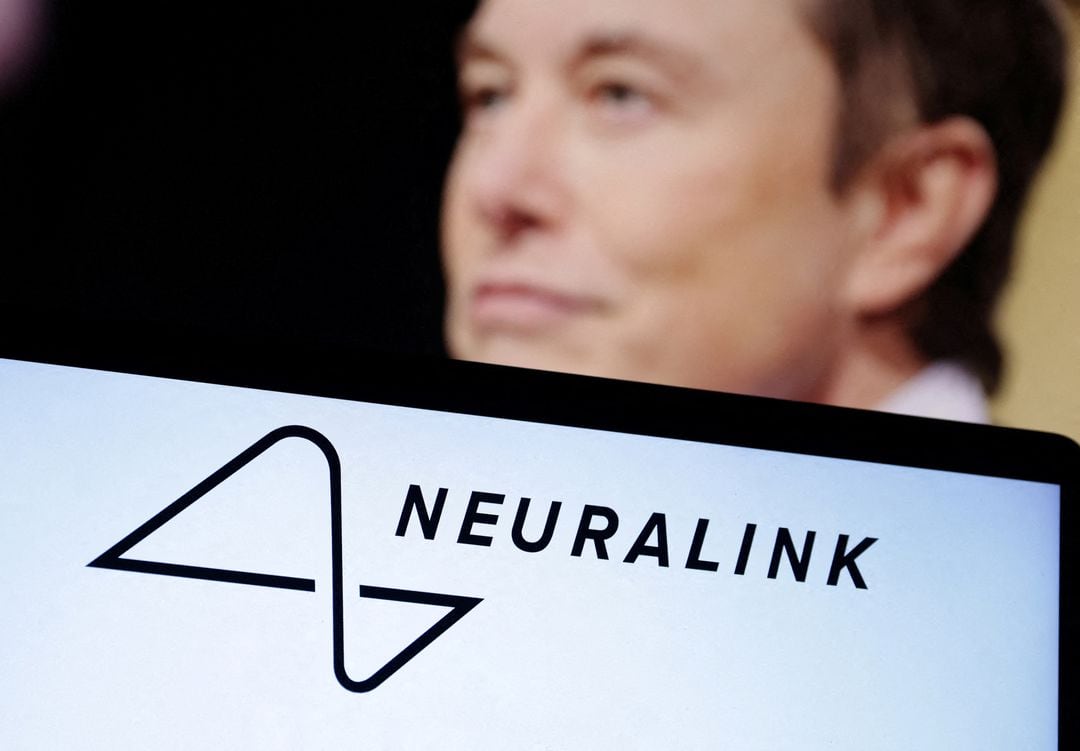
Brainwaves and Buzz: Elon Musk's Neuralink Implant – Science Fiction or Future Fact?
By Adedayo Oyetoke, Published on: February 19th 2024 5 min, 868 word Views: 931
Elon Musk, the tech mogul known for his audacious ambitions, sent shockwaves through the world in January 2024 with a tweet claiming the first human received a Neuralink brain chip implant. While details remain scarce, this announcement ignited a firestorm of speculation and debate, raising questions about the future of brain-computer interfaces (BCIs) and their potential impact on humanity.
What is Neuralink?
Neuralink, founded by Musk in 2016, aims to develop a high-bandwidth BCI capable of seamlessly connecting the human brain to computers. This technology promises to revolutionize various fields, including healthcare, communication, and even gaming. Imagine controlling prosthetic limbs with your thoughts, accessing information directly from your brain, or even enhancing your cognitive abilities – Neuralink paints a picture of a future where technology and mind merge.
The First Human Implant: A Cause for Celebration or Concern?
Musk's announcement, while lacking specifics, sparked both excitement and apprehension. Proponents hail it as a groundbreaking step towards a world of human augmentation, while others raise ethical concerns about privacy, brain manipulation, and potential misuse.
The Questions Remain:
- Who received the implant? What were their motivations and expectations?
- What is the purpose of the implant? Is it for medical treatment, communication, or something else entirely?
- What are the safety and ethical implications? How will privacy be protected, and could the technology be misused?
- What are the long-term goals of Neuralink? Is this the first step towards a transhumanist future?
Beyond the Hype:
While the first human implant is undoubtedly a significant milestone, it's crucial to approach it with cautious optimism. We need transparent information about the technology, its capabilities, and potential risks before we can truly understand its impact.
The Future of BCIs:
Neuralink's endeavor is just one piece of a larger puzzle. Numerous companies and research institutions are exploring BCIs, with varying approaches and goals. This field holds immense potential for improving lives and pushing the boundaries of human interaction with technology. However, it's imperative to prioritize ethical considerations and responsible development to ensure BCIs benefit humanity as a whole.
What We Know (So Far):
While Musk's tweet ignited the conversation, concrete details remain elusive. The identity of the recipient, the nature of the implant, and its intended purpose are shrouded in mystery. Neuralink, known for its closed-door development, has yet to issue an official statement or provide further information.
The Technology:
Neuralink aims to create a seamless interface between the human brain and computers, allowing for thought-controlled devices, improved communication for individuals with disabilities, and even enhanced cognitive abilities. The company envisions a future where individuals can interact with their digital environment simply through their thoughts.
The Hype and the Hope:
The potential applications of such technology are vast and tantalizing. Imagine paralyzed individuals regaining control over their limbs, or amputees experiencing phantom sensations restored through neural stimulation. The possibilities seem endless, fueling the excitement surrounding Neuralink's progress.
The Ethical Quandary:
However, alongside the hope, ethical concerns loom large. The implications of directly interfacing with the human brain are profound, raising questions about privacy, security, and the potential for misuse. Who controls the data collected by the implant? How can we ensure its ethical use? What are the long-term consequences of altering our cognitive abilities?
The Uncertain Future:
This initial human implant marks a significant step for Neuralink, but the journey is far from over. Extensive testing, regulatory approval, and open dialogue with the public are essential before widespread adoption can be considered. The path forward requires a delicate balance – embracing innovation while safeguarding human rights and ensuring responsible development.
The Implant:
News reports suggest the implanted device is roughly the size of a coin, containing tiny threads infused with electrodes. These threads are carefully inserted into the brain tissue, potentially allowing the chip to monitor and stimulate neural activity. However, specific details about the implanted chip's functionalities and the recipient's identity remain shrouded in mystery.
The Hype and the Hope:
Proponents of this technology herald its potential to revolutionize medical treatment for neurological disorders, paralysis, and even enhance human capabilities. Imagine restoring sight to the blind or enabling amputees to control robotic limbs with their thoughts – the potential for positive impact is undeniable.
Ethical Concerns and Unanswered Questions:
However, ethical concerns loom large. Concerns about data privacy, potential hacking, and the very notion of altering the human mind through technology spark heated debates. Will this technology exacerbate existing inequalities? Who controls the data collected by the implant? Will this usher in an era of "mind hacking" and manipulation? These are just some of the questions demanding open and transparent discussion.
The Road Ahead:
While many questions remain unanswered, one thing is clear: Neuralink's human implant marks a significant step on the path of BCI development. With further research, transparency, and ethical considerations, this technology could hold the key to unlocking new possibilities for human advancement. However, this journey must be undertaken with caution and a deep commitment to upholding human dignity and privacy.
Join the Conversation:
What are your thoughts on Neuralink's human implant? Do you see it as a potential force for good, or are you concerned about its ethical implications? Share your opinions and join the conversation about the future of BCI technology and its impact on humanity.
